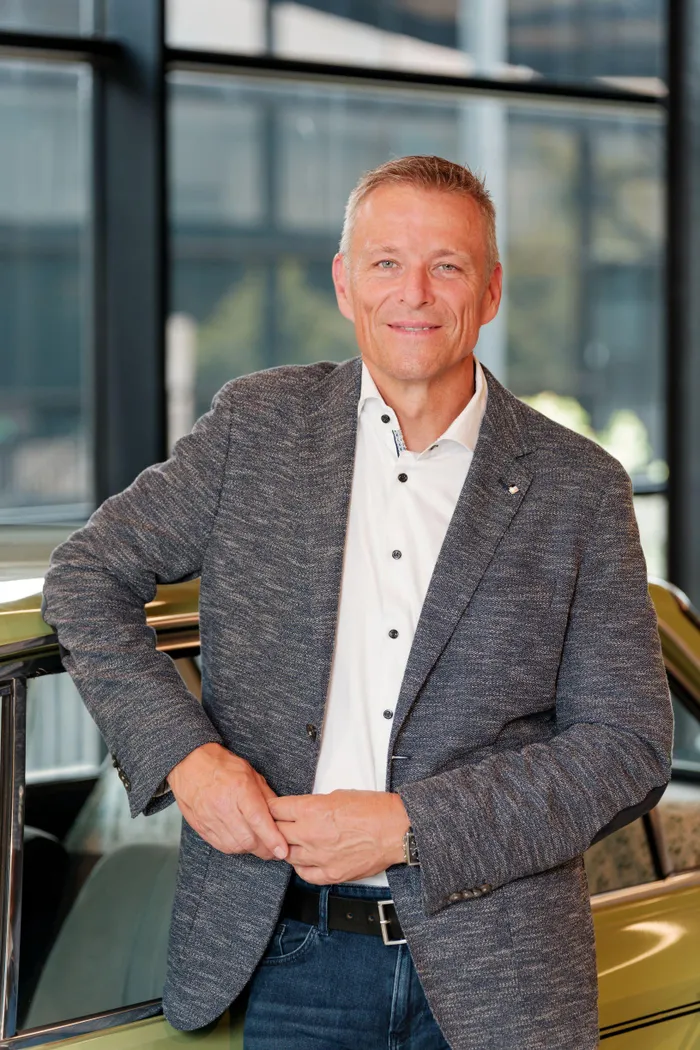BMW South Africa bets on new electric architecture to navigate economic headwinds

Peter van Binsbergen, the CEO of BMW South Africa, said the growth of electric mobility within South Africa hinged on the government's support for the infrastructure necessary to sustain this transition.
Image: Supplied
BMW South Africa is pinning its hopes on its new architecture for electric mobility to gain an edge in an evolving market amidst low domestic economic growth, the impact of the US import tariffs, and an aggressive influx of Chinese cars.
High unemployment rates and declining job security are pressuring automotive companies to reassess their strategies while actively seeking solutions to contribute positively to the nation's economic plight.
In a landscape where South Africa's economy continues to grow at a staggering rate of less than 1% for nearly a decade, the implications for the automotive industry are profound.
Peter van Binsbergen, the CEO of BMW South Africa, has expressed concerns about the broader economic challenges affecting vehicle sales, making it evident that affordability has emerged as a critical issue among consumers.
Despite recent figures indicating a 13.6% increase in new vehicle sales, much of this growth is seen within the less than R400 000 price point.
This bracket, while significant, signals a shift away from premium brands like BMW, as locally manufactured vehicles decreased by 14.0% for the year to date compared to the same period last year.
“Clearly, it’s a concern. This country needs robust economic growth to genuinely turn the tide on unemployment," Van Binsbergen said on Thursday.
He acknowledged that while BMW cannot solely drive that growth, the company is committed to being part of the solution.
He highlighted the importance of collaboration with the Department of Trade, Industry and Competition, noting the necessity for government-led initiatives that support both existing Original Equipment Manufacturers (OEMs) and attract new players.
“We want to see the number of OEMs in South Africa grow from seven to nine, to 10; each new manufacturer brings along suppliers and job opportunities, vital for revitalising the economy.”
The luxury car manufacturer will introduce to the local market next year BMW Group’s Neue Klasse generation of models designed with a pure electric focus, which said Van Binsbergen said will reshape the future of electric vehicles (EV).
The Neue Klasse, boasting what the German automaker calls "Gen 6" architecture, incorporates a completely new battery system and drivetrain. The sophisticated framework is geared towards maximising efficiency while decreasing energy consumption, waste, rolling resistance, and the overall weight of vehicles.
As a result, BMW anticipates the first vehicles built on this architecture will achieve an impressive range of 800 kilometres of range on a single charge, setting a new benchmark not only for the brand but for the entire auto sector.
"We believe that this architecture will raise the benchmark for how we envision the EV of the future," Van Binsbergen said.
"With its performance capabilities, an unparalleled range, and rapid charging speeds of 400 kW, the Neue Klasse will redefine what customers expect from electric vehicles."
The revolution does not stop at range and efficiency; the Neue Klasse introduces a sleek and intuitive digital experience. Featuring a minimalistic design, the vehicle's interior showcases a cutting-edge freeform touchscreen interface and a panoramic digital display that extends across the dashboard.
This innovative technological interface utilises voice control and eliminates excessive buttons, resulting in a streamlined user experience that enhances driver engagement. Beyond performance metrics and technological sophistication, the Neue Klasse places a strong emphasis on sustainability.
This robust focus includes a commitment to recyclability and a circular economy, reinforcing BMW's position as a leader in responsible manufacturing practices. The firm is keen to align with environmental, social, and governance (ESG) principles, ensuring that its operations—especially in South Africa—meet or exceed legal environmental regulations.
"Our operations here remain well ahead of the legal requirements, focusing on minimising water usage, emissions, and waste," Van Binsbergen said, emphasising the company's commitment to making a positive social impact through education and community investment.
By 2030, BMW Group expects Battery Electric Vehicles to account for 50% of global vehicle sales and will be available for 100% of today’s market segments.
Since 2015, BMW has been a pioneer in e-mobility in South Africa, partnering with dealers to enhance electric charging infrastructure and advocate for environmentally responsible business practices.
However, Van Binsbergen said the growth of electric mobility within South Africa hinged on the government's support for the infrastructure necessary to sustain this transition.
"We need adequate charging networks and governmental focus on electromobility to facilitate consumer adoption of electric vehicles," he said.
BMW has recently invested R4.2 billion into their South African operations, aimed at maintaining production capacity and safeguarding jobs.
Van Binsbergen emphasised that 96% of the vehicles produced at their South African plant were exported, showcasing the company's significant role in driving the national economy despite the challenges in the domestic market.
BUSINESS REPORT